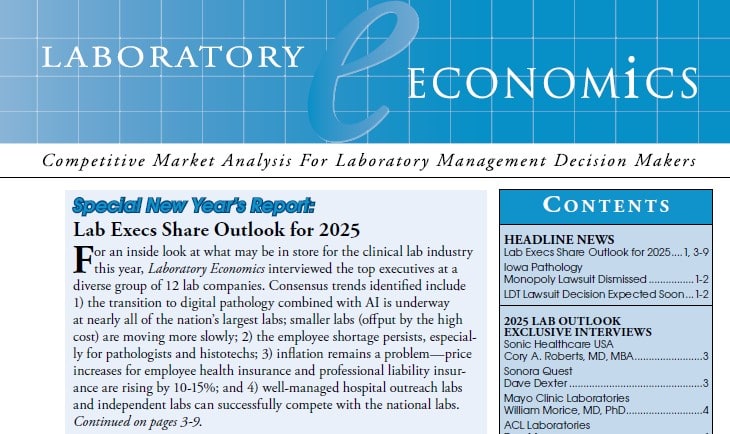Alverno launches test that helps doctors diagnose heart attacks faster

A High Sensitivity Cardiac Troponin Assay allows ER doctors to diagnose heart attacks within two hours of a patient’s arrival and may help women as well
Heart attacks will be detected faster and more accurately due to a new state-of-the-art, High Sensitivity Cardiac Troponin Assay used by Alverno Laboratories. The assay was implemented in phases throughout Alverno’s network of 36 hospitals in Illinois and Indiana during 2019. The tests are performed at each hospital location on Emergency Department patients and patients admitted to the hospital.
According to the Centers for Disease Control and Prevention, about 610,000 people die of heart disease in the United States every year. Heart disease is the leading cause of death for both men and women. Coronary heart disease (CHD) is the most common type of heart disease, killing over 370,000 people annually. The test helps doctors decide earlier and more accurately if patients are having a heart attack or not. Faster diagnosis of a heart attack means less time to life saving therapy. Conversely, faster rule out of a heart attack means fewer unnecessary heart cath procedures. Importantly, the new test helps doctors diagnose a heart attack in women more accurately. This improvement in women’s care is crucial since women often present with non-classic symptoms of a heart attack.
“Alverno continues to strive to enhance diagnostic laboratory medicine,” said Alverno CEO Sam Terese. “We are proud to be an early adopter of high sensitivity Troponin, an advanced heart attack marker. We have been performing Troponin testing for years, but as an early adopter of this new test we can lead to improvement in detection, and early detection means less damage to heart muscle, better outcomes for our patients and in some cases, survival.”

Troponins are a group of proteins found in skeletal and heart muscle fibers that regulate muscular contraction. Troponin tests measure the level of cardiac-specific troponin in the blood to help detect heart injury. Doctors routinely use a troponin blood test on patients who come to the ER with chest pain.
Alverno’s Innovation Committee supported the use of high sensitivity Troponin due to its wide use in Europe for more than 10 years and due to its wide acceptance in the medical literature. Previous troponin assays were neither as sensitive nor as accurate, which caused dissatisfaction among healthcare providers, according to committee member, Judy Lyzak, M.D., Vice President of Medical Affairs at Alverno. Terese has been with the company since 2005, first as Vice President, then as Chief Operating Officer, and, since Sept. 8, 2011, as its President and CEO.
In the last decade under Terese’s leadership, Alverno’s revenue has averaged 20 percent yearly growth. This year alone the company has made numerous major advancements, including:
- Becoming the largest U.S.-based network to launch groundbreaking digital pathology services from Royal Philips which enables Pathologists to use digital images to assess and diagnose all clinical histology cases.
- Incorporating the implementation of Precision Medicine into its network which predicts disease treatment and prevention strategies for patients based on the genetic makeup of patients and/or their cancer.
- Taking the opioid crisis head on with the implementation of groundbreaking, Liquid Chromatography Mass Spectrometer (LCMS) drug testing technology. The state-of-the-art technology, which will be implemented at Alverno’s Hammond, IN. central laboratory in early 2020, will allow doctors to determine whether a patient is taking their medications as prescribed and assist with better medication management.
- Adding two key Chicago hospitals and several suburban AMITA Health hospitals to its network. Mount Sinai Hospital, 1500 S. Fairfield Ave., Holy Cross Hospital, 2701 W. 68th St., and eight suburban AMITA hospitals, increased the number of hospitals in Alverno’s network to 36, from 18 in 2005.
- Expanding the number of testing staff at the Hammond central lab and the total number of associates (hospital and central lab) from 1,700 to around 2,100, Terese said. Terese added that Alverno’s next goal is to expand into Wisconsin, Iowa and Michigan.







